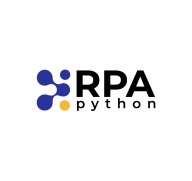


Automation Anywhere and Python RPA are competing products in robotic process automation. Python RPA has a technical edge due to its flexibility and integration capabilities, while Automation Anywhere offers a robust suite of features appealing to organizations seeking an out-of-the-box solution.
Features: Automation Anywhere provides enterprise-grade features including pre-built bots, drag-and-drop functionality, and a user-friendly interface. Python RPA is open-source, enabling high customization and integration with existing systems, extensive flexibility, and scalability.
Ease of Deployment and Customer Service: Automation Anywhere is known for its straightforward deployment process supported by dedicated customer service, reducing the burden for companies new to RPA. Python RPA demands significant setup and configuration, relying more on community-based support than dedicated service.
Pricing and ROI: Automation Anywhere involves higher initial setup costs but promises faster ROI due to immediate capabilities and comprehensive support. Python RPA offers lower initial costs for technically proficient teams, with ROI depending on the capacity to develop and maintain Python scripts for automation.
Fortra's Automate has effectively replaced the workload of an entire employee, saving us significant time and money.
In terms of cost, we participated in projects achieving two to three million dollars in annual savings.
As a return on investment, we have achieved a 250% ROI in six to nine months, and sometimes it increases up to 380% percent.
Automation Anywhere has helped us save money.
They don't always understand the processes I'm trying to implement.
I would rate the technical support as a nine out of ten because it is quite fast and courteous.
They are very responsive and have been able to resolve any issues I have encountered.
Whenever we need help, we can reach out to them, and they help us out.
We also have dedicated account managers and technical experts to solve our problems related to Automation Anywhere.
We just have to raise a ticket, after which we receive a call, email, or ping from the Automation Anywhere team.
It is easy to increase one bot or one studio without needing to buy another orchestrator, which can be quite expensive.
For Windows-based applications, it provides UI interface automation, which enhances its scalability.
Automation Anywhere is highly scalable for both horizontal and vertical expansions.
I would rate it a nine out of ten for scalability.
It has very robust features, and it is not prone to instability.
The stability of Fortra's Automate is excellent.
With the latest applications, there are no significant issues like freezing or crashing.
The platform runs smoothly, and the deployment process is user-friendly in both UAT and production environments.
It usually does not lag or crash.
I would prefer not having to log in to update a ticket; being able to respond via email would be beneficial.
Integration with Amazon S3 is somewhat lacking.
I find that most important features are strong, however, there is a lack of good development for artificial intelligence, such as machine learning.
It is better to write a Python script instead of using Automation Anywhere's package when dealing with Excel because it is buggy and tends to break.
Making the product more lightweight by reducing its dependency on infrastructure could greatly help in the long run.
It would be beneficial if the platform provided options for power developers to integrate seamlessly with languages like Java or C#, allowing them to write their own scripts and code.
Competitors are often more expensive than Automate.
It offered what we wanted at a good, competitive price.
It does a lot but also costs a lot.
It is more cost-efficient compared to all other RPA platforms.
Automation Anywhere costs are aligned with UiPath and Blue Prism, which are also expensive.
It is not cheap, with costs ranging between 700 to 800 dollars per month.
Automate's non-reliance on additional orchestrators makes it quite cost-effective.
I find the ease of use from a programming perspective very valuable.
The most valuable features of Fortra's Automate include its FTP functionality and file manipulation capabilities.
I can set it up to provide users with a form to fill in all required information, and then the bot operates based on those specifications.
For example, the email module has been enhanced over the years to support all the latest authentication technologies. That is very important as we move away from username and password and embrace multi-factor authentication.
Automation Anywhere has undergone drastic changes over the past five years, transitioning from version 10 to A360, including desktop-based and cloud-based options.



Automate offers a user-friendly solution with a drag-and-drop interface for efficient task automation and integration with major platforms like SAP and Azure, making it ideal for quick deployment with minimal coding and training.
Automate provides powerful features for businesses seeking efficient automation, offering compatibility with databases, email integration, and cloud platforms. Its simple interface supports both beginners and experienced users, simplifying tasks like invoice processing, HR automation, and data transformation. Cost-effective pricing and flexible licensing enhance its appeal while integration capabilities and scheduling tools ensure smooth workflow automation.
What are Automate's Key Features?In industries such as healthcare, banking, and logistics, Automate is used for tasks like invoice payment automation, data transformation, and task automation. This leads to streamlined processes and reduced manual workload, illustrating its value in enhancing operational efficiency through diversified workflows.
Automation Anywhere offers a robust automation platform known for its user-friendly interface, flexible scalability, and advanced automation capabilities. It's designed to streamline operations across industries by automating manual and repetitive tasks.
Automation Anywhere empowers organizations with its easy-to-use platform that simplifies automation processes through its drag-and-drop functionality. With features like MetaBot and IQ Bot, it provides advanced automation solutions. The platform seamlessly integrates with business applications, ensuring efficient operation and data protection through security features like the credential vault. Despite its strengths, there is room for improvement in integration with source control systems and third-party applications. Enhancing UI friendliness, IDE capabilities, and licensing flexibility, along with improved support in the Citrix environment, are needed. Better OCR accuracy, AI functionalities, and Excel integration would enhance user experiences.
What are Automation Anywhere's key features?
What benefits and ROI should users look for?
In the finance sector, Automation Anywhere is used for tasks like accounts payable, accounts receivable, and invoice processing. In HR, it's implemented for onboarding, payroll, and attendance verification. Its deployment also extends to supply chain, compliance, and customer service, providing streamlined operations by automating complex business processes.
Users employ Python RPA for automating repetitive tasks and streamlining workflows, reducing manual errors, and enhancing efficiency in processing data, web scraping, and application integration.
Python RPA is valued for its ability to handle complex automation processes, its flexibility, and its compatibility with different systems. It is particularly beneficial for large-scale data handling and business process automation. Users find the extensive library and strong community support helpful for swift issue resolution and knowledge sharing. Its intuitive design and clear documentation simplify the learning curve and implementation. However, documentation can lack depth, making troubleshooting challenging. The setup process can be cumbersome, requiring more intuitive guidance. Execution speed can be slow, causing inefficiencies in workflows, and there is a need for better support and resources for developers. Some users report difficulties with integration into existing systems, suggesting enhanced compatibility and flexibility are needed.
What are the key features?In industries where large-scale data processing is essential, such as finance or healthcare, Python RPA helps automate data entry, validation, and reporting, significantly reducing manual labor and improving accuracy. In retail, it integrates with e-commerce platforms to automate order processing and inventory management, ensuring smooth operations. Other sectors, like logistics, benefit from Python RPA by streamlining dispatch and tracking processes, enhancing operational efficiency and customer satisfaction.
We monitor all Robotic Process Automation (RPA) reviews to prevent fraudulent reviews and keep review quality high. We do not post reviews by company employees or direct competitors. We validate each review for authenticity via cross-reference with LinkedIn, and personal follow-up with the reviewer when necessary.